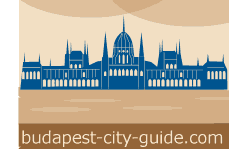Budapest Travel Tips

Money
Currency
The Hungarian Forint (HUF) is the currency used in Budapest. People who are not familiar with the national currency of Hungary should learn, before traveling to Budapest, that coins refer to 5 HUF, 10 HUF, 20 HUF, 50 HUF, 100 HUF, 200 HUF, whereas banknotes are represented by 500 HUF, 1,000 HUF, 2,000 HUF, 5,000 HUF, 10,000 HUF and 20,000 HUF. Tourists should really pay attention to how much they pay for a certain product or service or to the exchange they receive, since people who count on visitors’ lack of familiarity with the Hungarian Forint have been known to capitalize precisely on this issue.
Money exchange
As far as money exchange is concerned, tourists are advised to exchange foreign currency within the borders of Hungary (or Budapest, for that matter), since the banks in Hungary are said to offer much more convenient rates than banks outside the country, at least in terms of national currency exchange. At the same time, visitors are urged to resort to legal means of exchange exclusively, such as the banks, exchange offices, travel agencies or hotels. Hotels, on the other hand, are known for practicing a money exchange policy which is rather inconvenient for tourists, since their offered rates are some 10% lower than the official exchange rate.
In Budapest there are plenty of banks (main offices and branch offices alike), most of them being located on the east side of the Danube, namely, in Pest. Tourists can definitely rely on these institutions in order to exchange foreign currency.
Credit cards and travelers’ checks
Visitors of Budapest should rest assured: most of the tourism-related venues (shopping centers, restaurants, hotels and the like) accept credit cards as means of payment. International credit cards, such as AmEX, Diners Club, Cirrus, EnRoute, EuroCard, MasterCard, JCB and VISA will always guarantee safe payment transactions.
On the other hand, Hungarian institutions have an opposite attitude towards travelers’ checks. Few Hungarian banks accept such papers and, in order to avoid embarrassing situations, tourists should make sure traveler’s checks are indeed able to service their vacation plans. Certain banks and post offices do accept travelers’ checks transactions.
Communications
Internet connection
From the point of view of the Internet connection, Budapest is more than generously endowed. Extensive public areas (parks, malls, streets) give users free wireless access to the Internet, which is a comforting prospect for people who want to keep posted with their current affairs even on holiday.
On top of that, there is a plethora of coffee shops and restaurants where clients can use the Internet for free. On the other hand, certain tourism-related venues (hotels or Internet cafes, for instance) still provide connection to the Internet against a fee.
The bottom line is the connection to the Internet is highly unlikely to become an issue for people who depend on it or who simply want to surf the net for their own amusement.
Post offices
In Budapest there are some 10 post offices but, again, they are chiefly located in Pest, on the east side of the Danube. Two of the most important offices are located in highly frequented tourist venues, such as the West Train Station and the East Train Station. As a rule, post offices open weekdays between 8am and 6pm.
Telephones
In order to call from abroad to Budapest, one must first dial the country code for Hungary, that is, 0036, and then enter 1, which is the area code for Budapest. As a rule, landline telephone numbers in Budapest consist, besides the country and the area codes as such, of 6 or 7 digits.
Useful telephone numbers
Tourist police
- Name:
- Tourist police
- Telephone:
- 0036 1 4388080
Fire department
- Name:
- Fire department
- Telephone:
- 105
Police
- Name:
- Police
- Telephone:
- 107
Ambulance
- Name:
- Ambulance
- Telephone:
- 104
Others
Tourist information offices
In Budapest there are 7 tourist information offices. They are located in places of huge tourist significance, such as the terminals of Budapest Airport or the train stations.
Time zone
One hour ahead of GMT (summer time)
Spoken language
Hungarian is the official language spoken in Budapest.
Gay communities
Budapest is home to a consistent gay community. People with less mainstream sexual orientations are now socially (and not only) accepted, as opposed to their status in the past. This is why plenty of gay-oriented venues have been established, offering a solid leisure scene for the gay community (clubs, bars and the like). Gay tourists can definitely find a shelter and a sparkling fun opportunity in these venues Budapest is dotted with.
Go to top